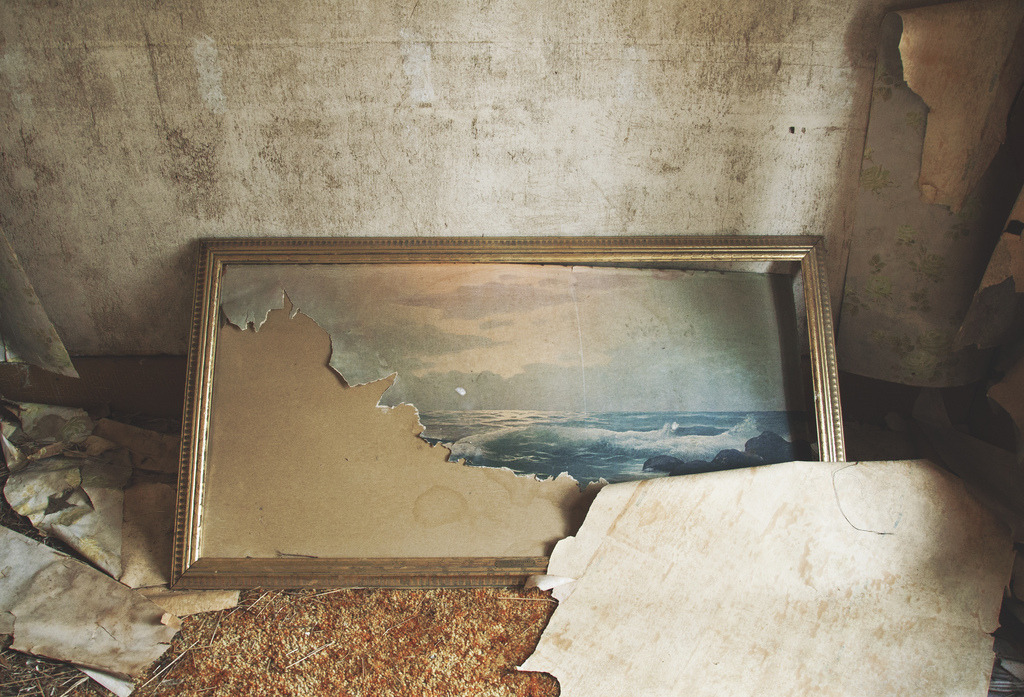
—
for Johnathan Harvey
The tops of the city buildings are braced in fog,
the night sky cow-poked for blocks and the plains
distilled from Des Moines to Chicago.
Rooted in concrete, the poplar’s wind-heartened
leaves whip at the windowand the white gravel
path, littered with goose leavings, blanched
and retreating—well, we have seen this before.
The dregs of aluminum and fishing wire
an overturnedshopping cart
left in the riverbed when the river cut
a new channel, the beach and its bones
the shoulder and its husk of car.
We have seen it in the mad rocking
of the clay flood, the estuary
and the complexity of the living which
in the end is still like the rose family
or a fruit with one ovary, an apricot
growing in a notional season. In this climate
black stunted cherries dwarf lemon trees,
Michigan dunes slough through time,
a glacial trace of a remnant world,
and rivers are reversed. Suppose the nominalism
of the carped lake and the stalked fields—
what’s new under the atom? Have you killed
Isaac in those fields and refused
to bury him beneath a copse of stones
dusted with the ash of his belongings
ringed by a hedge of evergreens?
Do the inaccuracies of our mysteries matter?
The miraculous misunderstandings of distance
provide us with a compound vision?
We have not sheathed our skin,
baseball is an argument for radio and the city
lights are a parting fire we mark and carry.
And though fire is a gasping fish grasped
with bare hands you said,
let’s not be so literal. A young man
tight-roped in an ambulance
stretcher between a thrumming silence
breaths but not air. Where is there
an end to the city wailing?
Politiea: the city’s norms are heroic.
Is the city nameless?
The registrar assigns dead numbers
to the living. I am my grandfather
and my grandson. I stand photo-shopped
on steel girders, soap-boxed on street corners.
The rain-heavy trees shed their boneless weight
while wrapped buildings wear
black scaffolding. The salt air of the Gulf
tunnels up through Texas
warms our beaches. We were poets
and wanted to protest but lost in our words
the dead left the dead for dying.
—
